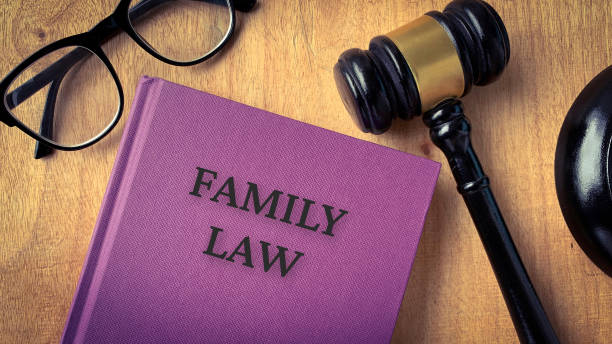This article aims to provide an outline on how to get an AVO on someone. Before we discuss this question, let’s first understand what an AVO is, and what it does. Domestic violence is a prevalent issue not just in Australia but in other countries as well. Domestic violence victims suffer hence, they need protection so they can feel safe and continue with their day-to-day activities. This is where AVOs come in.
AVO (Apprehended Violence Order) is a term that you can often see in divorce and family law cases. A court can issue an Apprehended Violence Order (AVO) against someone (the defendant) you fear for your safety, usually a current or former partner, or even family members.
The function of an Apprehended Violence Order is to protect you from further harassment, intimidation or further domestic and personal violence.
Types Of AVOs
An important aspect of knowing how to get an AVO on someone is understanding the types of AVOs and checking which type will apply to your particular case. Basically, there are two types of AVOs, which are: –
1. Apprehended Personal Violence Order (APVO). Even people who aren’t related to you or in a domestic relationship with you can be subject to an APVO. For instance, APVOs can be issued against neighbours and co-workers.
2. Apprehended Domestic Violence Order (ADVO). An Apprehended Domestic Violence Order (ADVO) protects someone from a person they have a domestic relationship with, typically someone they live with or have/had an intimate relationship with.
Who Can Get An AVO On Someone?
To know how to get an AVO on someone, it is also essential to check whether you can apply for it. Basically, you can get an AVO on someone, if: –
- You are a victim of physical assault, or sexual assault, or threats of with physical harm, stalking, harassment, or intimidation, and believe that this behaviour will continue.
- You are aged 16 years or older
When To Get An AVO?
A You must consider getting an AVO in cases where: –
- A person has hurt you, or hurt your child.
- You fear that a certain person may hurt you, or hurt your child.
- A person is stalking, harassing, or intimidating you, or your child.
Conditions Included In AVO
An Apprehended Violence Order (AVO) sets strict limits on certain behaviors, forbidding the listed actions altogether. The three main areas this covers are:
Intimidating the protected person;
Stalking the protected person; and
Assaulting, harassing, molesting, threatening, or interfering with the protected person.
In some cases, certain additional conditions will be included, which prohibit additional behaviours, including: –
Approaching the protected person;
Approaching the protected person, or any places where the protected person will be, after consuming alcohol or taking illegal drugs;
Entering or approaching places where the protected person lives, works at, or frequently visits; and
Damaging property.
In cases where children are involved, these conditions can be altered to include the maximum protection for children. For instance, an AVO may state that approaching or entering a place which is often visited by the child (school, playground, daycare etc.) is prohibited.

Two Ways To Get An AVO On Someone?
There are two ways through which you can get an AVO on someone.
Police Method
To get an AVO, you need to show that there are reasonable grounds to fear the defendant. If you are in immediate danger, you should call the police, and in cases of domestic and family violence, the police may apply for a provisional AVO on your behalf.
To make a police application you may either:
Attend a police station
Let police report the incident
1. Provide A Statement
In making a police application, you need to provide a statement that includes as much information as possible.
This includes the full name of the person you want protection from, the address of the defendant, the date of birth of the defendant, the domestic relationship you share, and other relevant information.
2. Sign The Statement
After the statement has been provided by you, you need to sign the statement, after which the police will give you a copy of the statement.
3. Police Serve The Application
The police officer is required to serve the application to the defendant. The application will contain information about the date on which the defendant is supposed to attend the court.
4. Go to court
You are required to attend the court on the same date and at the same time specified on the application served to the defendant.
A Domestic Violence Liaison Officer (DVLO) will help you through the court AVO processes, and to get proper victim support.
Private Court Application Method
Alternatively, you can apply for an AVO without the help of police, by making a private court application at your local court.
1. Contact the court
You will need to go to the nearest local court, and find out if they have a kit or form which you can fill for getting an AVO. In some courts, you may need to make an appointment with the registrar, who can then help you out with your application.
2. Fill the forms/ meet the registrar
In this step, you then need to provide as much detailed information as possible. This information includes things like details of the defendant, including full name, address, date of birth, etc.
3. Sign the application
Similar to the police method, you will need to sign the application to show that all the information that has been provided by you is accurate.
4. Serve the application
Once the application is complete a police officer or a court-appointed person must serve it to the defendant.
5. Go to court
Much like the final step in the police method of getting an AVO on someone, both you and the defendant must attend during the specified court date, and at a specified time. A police prosecutor and/or your lawyer may reprsent you during the court proceeding.

Importance Of Legal Advice
Having understood how to get an AVO on someone, you might realise that the process can be a bit lengthy. With the stress that you must be going through because of the incident that has caused fear in your mind, it is ideal that you try and simplify all the procedures around getting an AVO against someone.
One way to do so is to seek the guidance of an experienced solicitor about your specific family law or criminal offence matter. At JB Solicitors, the experienced and friendly lawyers can help you with all matters concerning domestic or personal violence.
We value all our clients, and consider the safety of our clients as the most important aspect when dealing with any case. You can rest assured that our lawyers will handle each procedure for you with utmost dedication, and compassion.
Contact JB Solicitors to gain more information on AVOs. We can also provide a detailed explanation on how to get an AVO on someone.
